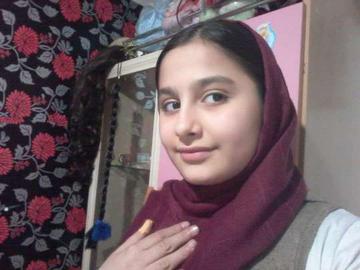On December 17, 1995, the United Nations General Assembly designated November 25 as the International Day for the Elimination of Violence against Women. The date commemorates the Mirabal sisters, who were brutally murdered by the Dominican Republic’s dictator Rafael Trujillo on November 25, 1960.
Since then, every year, from November 25 to December 10, there are global efforts to combat violence against women, raise awareness of their plight, and improve their situation around the world.
But despite this long struggle, violence against women has not stopped. In 2020, the coronavirus pandemic has meant that women around the world have been confined to their homes, and in many cases, violence against them has increased.
***
Over the last year, many women around the world have lost their jobs and have been trapped at home due to the coronavirus pandemic. In many cases, women staying at home has meant being with their husbands or partners full time, and many have been forced to provide more services for the household, including their children’s education. During this time, the number of violent attacks against women and murders of them has increased.
According to the NL Times, in 2019, 44 women were killed in the Netherlands. Deutsche Welle reported that in the last two years, women’s requests for help in European countries has increased by 60 percent. And, more recently, the Mexican government says it has seen a 100 percent increase in domestic violence due to the escalating crisis of the coronavirus outbreak.
In Iran, however, since the will to prevent violence is not based on transparency and legal and fundamental mechanisms, no official statistics are available. However, evidence published on social media reveals some shocking statistics of honor killings and domestic violence over the last year.
Among the terrifying and horrific cases is the murder of Romina Ashrafi, a 13-year-old girl from Talesh, who was murdered by her father with a sickle. There was the murder of Reyhaneh Ameri, a 22-year-old woman from Kerman; killed by blows from her father's ax; the horrific murder of a woman and her two daughters, aged three and six, near Mashhad by boys armed with axes; the murder of 16-year-old Fatemeh by her uncle, who threw her from the 11th floor of a building, the “honor killing” of a 16-year-old girl in a village near Sarpol-e Zahab, shot by her 33-year-old brother; the murder of Fatemeh Barhi, a 19-year-old woman near Bahmanshir in Abadan by her husband, Habib Barhi; and the murder of Somayeh Fathi, an 18-year-old woman from Kermanshah, by her father and brothers, again, a so-called “honor killing.” There are many, many more examples.
Why have the constant efforts of journalists, human rights activists and international organizations to improve the situation for women not yielded significant results?
"We are dealing with a sick, helpless and incapacitated system, and this doubles the difficulty," women's rights activist Samaneh Savadi told IranWire.
Savadi describes women in Iran, and particularly women who are demanding equality, as being surrounded by heavy concrete walls, trying to scratch the surface with their fingernails: "They ask, 'can we scratch the surface of the wall of discrimination and violence, which is both institutionalized and legal?' Yes, I think we can. But this wall will not collapse overnight, or in a year. We need perseverance, and it is with this perseverance that the light of hope will gradually shine. This wall is very structured and strong, because much of the violence against women in Iran is legal. We are dealing with legalized sexual violence called obedience. We face legalized social violence called the right to divorce for men, or social violence that makes a woman's right to work conditional on her husband's consent. There is violence in the name of not having the right to choose what to wear, and many other cases of organized violence."
Savadi believes that in order to reduce violence against women, people have to be patient and tolerant.
"Fortunately, what has happened is that the number of people who believe in this way and avoid these discriminatory laws is increasing every day. The more these fingers are used to scratch the wall of discrimination, inequalityو and violence, the more likely it is that the wall will collapse."
Savadi believes that, due to censorship, exclusion, and structured repression, there are no other tools available apart from civil resistance and effort. "Current laws and regulations do not allow for organizations and convergence, so we have no other tool but our own efforts. We stand strong together, treating each other's wounds and returning to our goal each time we fall, with the great hope that one day our ability to break down this wall will increase, and I think that day is not very far off."
Mohammad A., a sociologist and women's rights activist living in Iran, also believes that quarantine and the coronavirus pandemic have increased violence and urban insecurity. Women's social presence has been reduced. A number of factors have an impact on this issue, including the spread of inequality, poverty and unemployment due to the coronavirus crisis, the psychological and social effects of this disease, the spread of right wing ideas and the growth of various forms of religious extremism, including Islamic, Jewish, Hindu, Buddhist, and Christian extremism. In addition, the process of fighting against violence has been marginalized, and, more generally, mental health and social health have been marginalized in policymaking, budgets and planning."
The sociologist, who has worked in urban areas for many years and also has experience in journalism, points the positive impact efforts to end violence against women has had: "There is hope. For example, a literature and serious discourse of resistance in the field of equal rights for women has been established, which should be taken as a good omen. This includes a new wave of the "Me_too" movement in Iran and the movement to abolish the death penalty, as well as the many efforts that have been made to combat honor killings. Of course these progressive movements are not limited to Iranian society; for example, there are movements such as the Polish abortion movement that have attracted worldwide attention."
I asked women's rights activist and community researcher Eli Khorsand: has staying at home and lifestyle changes that have come with it contributed to an increase in violence against women over the last year?
She says it’s extremely difficult to answer such questions in the absence of any clear statistics on the social harms women face: "Unfortunately, such statistics do not exist, neither in quality or quantity, because the government is strongly opposed to providing statistics about social harms, and even deny these harms are there in some cases. On the other hand, we are talking about a cultural system that does not consider a series of damaging acts or events that take place in a woman's life to be essentially violent, in the sense that they have lived with them to such a degree that it has become part of the reality of people's lives and so considered to be part of the normal course of life. This cultural system lacks the sufficient knowledge and education to know what is an example of violence and what is not. Thus, there is no clear picture of what quantitative and qualitative changes have taken place when it comes to levels of violence at a time when people's lifestyles have change and people are living more closely together."
Khorsand says that, in a society where people agree on a set of values, a situation such as the outbreak of coronavirus does not lead to an increase in violence. “During a period of war in a society with common values, the level of empathy and unity increases, and the number of social harms decrease. But we are in society that has lost the ability to agree on common values, and negative individualism has grown. So there is no place or opportunity for constructive research. Therefore, we cannot give a clear picture of what is happening in personal or social relationships."
For Khorsand, an environment where the fear of the future and economic problems is on the increase, and where people live in the shadow of a system that lacks security, with or without a coronavirus pandemic, there are increases in all kinds of violence, including domestic violence, resulting in social disintegration.
She points out that the political system in Iran not only has no ability to reduce violence against women, it is in itself an aggravator of violence.
She also points to the relationship between those hardest hit by the coronavirus pandemic and economic class: "If we belong to a deprived class of society, it is natural that we will see an increase in violence, since our time spent together and at home will be accompanied by escalating unemployment and financial pressure. But in the upper middle class, domestic violence is not necessarily linked to increasing contact and quarantine, because it provides them with opportunities to take full advantage of their situation and even see it as an opportunity to relax."
In the meantime, what can we do as individuals? Are there any guidelines for reducing domestic violence?
Razieh Dehdashti, an expert in clinical psychology, believes that even in the current difficult situation, there is opportunity for the situation to be improved. "I advise women that if they are enduring domestic violence and that coercion has become part of their personality, they should, as far as possible, distance themselves from that person and not be afraid of separation. And if this route is too expensive and out of reach and they need more time to make decisions, they should avoid physical confrontation or arguing as much as possible. In the event of an argument, they should leave the vicinity calmly and peacefully, and in no way try to provoke any anger; they must do what they can to take themselves away from those difficult situations."
She says, too, that when a relationship is accompanied by violence, one should be careful about unwanted pregnancies, where possible. "In a situation where there is no stability in a relationship, anything that forces you to stay or ties your hands is dangerous. In order to have the right decision-making power, beware of unwanted pregnancies. If you have decided that you have to leave after the coronavirus pandemic has passed, it is important you take care of yourself. Again, do not retaliate, leave the room quickly to avoid danger.” She urges women to plan their move as soon as they can, always keeping in mind how important it is to stay safe. At the same time, it is obvious that these dangers are not always avoidable, and given the unpredictable nature of violence and violent people, the luxury of planning is not always at every woman’s disposal.
visit the accountability section
In this section of Iran Wire, you can contact the officials and launch your campaign for various problems



























comments